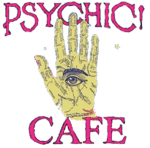Every living thing needs to sleep and we all know what it feels like if we suffer from lack of sleep, maybe due to a late night, or being on shift work. But how exactly does this happen and what happens if we are sleep deprived over a long period of time? Sleep is a naturally occurring state of mind and body, identified by what is known as the state of altered consciousness. This inhibits the movement of the sensory activity and most of the voluntary muscles.
Most people assume that to be asleep is to be unconscious, but we know that can’t be true as our vital organs continue to work while we sleep, eg heart and lungs. However, although our senses shut down when we sleep, if a ‘phone rings or an alarm sounds, we not only hear it, but we react to it , so we are obviously awake when we sleep!
We have what are called sleep cycles, which occur approx. every 90 minutes throughout the time we are sleeping. These repeat as long as we sleep, so we can also know that we can dream several times during the night. The sleep cycles are broken down into 2 main types, REM (Rapid Eye Movement) and NON-REM ( a period of no eye movement). The cycles occur in various stages, which can be monitored. At first the brain goes into sleep mode, so it slowly lowers the level of consciousness.
The first three stages are the slowing down process as we go into a deeper and deeper sleep. In stage four we are in the REM stage and this is when we dream and our eyes move around as though following the action in the dreams. It is therefore essential at this stage that a form of paralysis takes over the body, thus preventing it from trying to act out the movements being observed in the dream. This stage lasts approx. 10 minutes during the first sleep cycle though can often be extended in later ones. Following REM the brain begins to slowly move back up the stages to the light sleep stage. This 90 minute sleep cycle repeats throughout the night through all of the stages each time.
So what is it in our brains that control all of this action?
A hormone called MELATONIN, which is produced by the Pineal gland, regulates sleep and wakefulness. If you travel abroad then going through different time zones affects how you feel on your arrival – we call this Jet-Lag- and it is linked to what is known as our CIRCADIAN RHYTHM. This runs on a roughly 24 hour cycle and can be called our internal body clock. Linked to our biological needs it is what alerts us to when it is time to eat again, so that we feel hungry, and also when the body needs to sleep to recuperate energy, a bit like recharging batteries!
Changing time zones interferes with this body clock as we try to adjust to our new surroundings in a new time zone, when our eating and sleeping patterns are about to be disturbed. In the USA Melatonin tablets are readily available at most chemist shops (drug stores), but in the UK they require a prescription. The tablet releases the hormone into the brain and causes it to feel the effects of tiredness and therefore induce sleep when it maybe lunch time where you have just arrived, but bedtime back in your normal time zone.
Shift workers feel the effects of changes in sleep patterns due to the disruption of the body clock, but most get used to the adjustments over time.
So we can see that sleeping is a very complex matter and should be taken seriously.
Author: Chrissie





